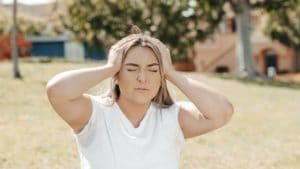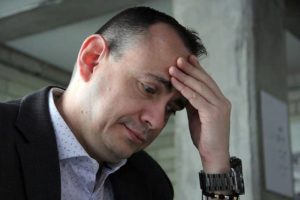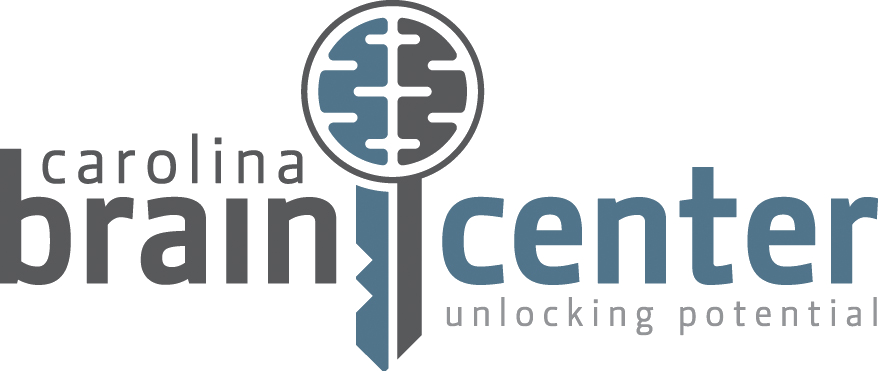
Over the years, Raleigh chiropractic neurologist Dr. Darcy Dane has treated patients with all kinds of brain disorders. One of the problems she has seen almost more than any other is concussions.
Dr. Dane believes concussions have been misunderstood and mismanaged in years past. After all, traumas often leave no external mark of their occurrence, and the most commonly prescribed concussion treatment is rest.
Dr. Dane thinks we can always do more in concussion management and neurological treatment. New technology and research are driving better treatment options, and those scientific advances mean that physicians must continue to learn.
Dr. Dane and her team use the functional neurology approach to treat concussions at the Carolina Brain Center. Learn more about Dr. Dane’s neurological treatment methods and how they can help patients overcome the devastating effects of these injuries.
What is a Concussion?
Concussions are traumatic brain injuries caused most frequently by blows or jolts to the head or the forceful shaking of the head or upper body. These impacts cause the brain to knock against the rigid walls of the skull, thereby damaging parts of the organ’s soft tissue.
Concussions are sometimes considered elusive conditions to identify because they usually do not cause loss of consciousness. It is not unheard of to sustain a concussion but be unaware you have one.
Symptoms of Concussions
With the definition of a concussion in mind, it is vital to recognize the common symptoms of concussions and get medical treatment if needed. These symptoms can last for days or weeks following the initial blow and may be delayed in appearing at all.
Some common symptoms of a concussion include:
- Headache
- Tinnitus, or ringing in the ears
- Dizziness
- Nausea
- Sensitivity to stimuli such as bright lights or loud sounds
- Confusion
- Fatigue
- Memory loss
These symptoms may sprout immediately following a concussion, but others might become known only after a few days because it takes that long to notice their presence. These could include depression, difficulty concentrating, and mood alterations, such as a noticeable increase in irritability.
The intensity of concussions ranges from mild to severe, with the worst cases involving loss of consciousness, if only for a few moments. Most individuals who sustain a less severe case can recover from a concussion on their own. A doctor should treat any severe trauma involving loss of consciousness immediately.
How to Identify a Concussion

Knowing how to identify a concussion without a medical background is tricky because these conditions cannot precisely be examined as cuts or bruises. Concussions occur entirely inside the skull and manifest as different symptoms on different schedules in other people.
Dr. Dane believes these facts should encourage doctors everywhere to stay updated on the latest discoveries in concussion treatment. This is especially important given that up to three million sports-related concussions occur annually in the United States. According to the University of Pittsburgh Medical Center, about half of these sports-related concussions are not reported to doctors.
Dr. Dane’s Neurological Treatment Approach
Functional neurology treats nervous system disorders through cognitive- and sensory-based treatments. Dr. Dane likes to call her approach “exercise for the brain.” In the same way that lifting weights can build arm muscles, functional neurology can strengthen the brain’s available capacities.
Dr. Dane takes a structured approach to functional neurology to treat concussions. First, she examines a concussed patient using subjective and objective findings. These include patients’ answers to their health and symptoms, videonystagmography (VNG), computerized posturography, other visual and vestibular diagnostics, and a physical exam.
This information helps Dr. Dane identify which part of a patient’s central nervous system has been affected by the concussion. Once Dr. Dane has learned the severity of the brain injury, and how it affects cognitive functions, she and her team can begin designing effective neurological treatment protocols for concussed patients.
Functional Neurological Treatment
In the case of a concussion, a functional neurological treatment might include:
- Having the patient participate in sensorimotor-based activities.
- Visual therapy
- Vestibular therapy
- Cognitive therapy
- Musculoskeletal treatment
- Motor coordination and timing activities
- Repetitive Peripheral Somatosensory Stimulation
- GyroStim therapy
Dr. Dane has seen this functional neurological treatment approach help many patients recover from a concussion. At the Carolina Brain Center, Dr. Dane will treat what can be treated and help patients increase function in areas that cannot fully recover.
Carolina Brain Center Can Help You Recover from a Concussion
Dr. Darcy Dane is an experienced professional who has worked with some of the most acclaimed doctors in functional neurology. Dr. Dane has become a leader at the Carolina Brain Center, the home of groundbreaking healthcare innovations such as the GyroStim, a multi-axis rotational chair. GyroStim has been granted FDA clearance as a Medical Device to assist in treating balance disorders and vestibular dysfunction.
HBOKT, hyperbaric oxygen-ketone therapy, is another groundbreaking innovation. Dr. Dane maximizes the benefits of hyperbaric therapy by adding ketones and healing tones while the patient relaxes, allowing the brain to get into deep healing mode.
The team at the Carolina Brain Center has treated patients throughout the Raleigh, Durham, and Chapel Hill areas of North Carolina, as well as patients from South Carolina and Virginia. Internationally, Dr. Dane has seen patients from Canada, the Dominican Republic, and as far away as Kuwait.
If other concussion treatments in North Carolina have failed you, you owe it to yourself to see what Dr. Dane’s functional neurological treatment approach can do for you. Contact us at the Carolina Brain Center at (919) 703-0207 to meet with Dr. Dane and start your recovery journey.
Why Carolina Brain Center?
Dr. Dane brings 20 years of experience to the Triangle and has helped many people achieve a healthier brain and body.
Ready For A Consultation?
Dr Dane is ready to talk when you are. We’ll need some information from you to get the process started!

